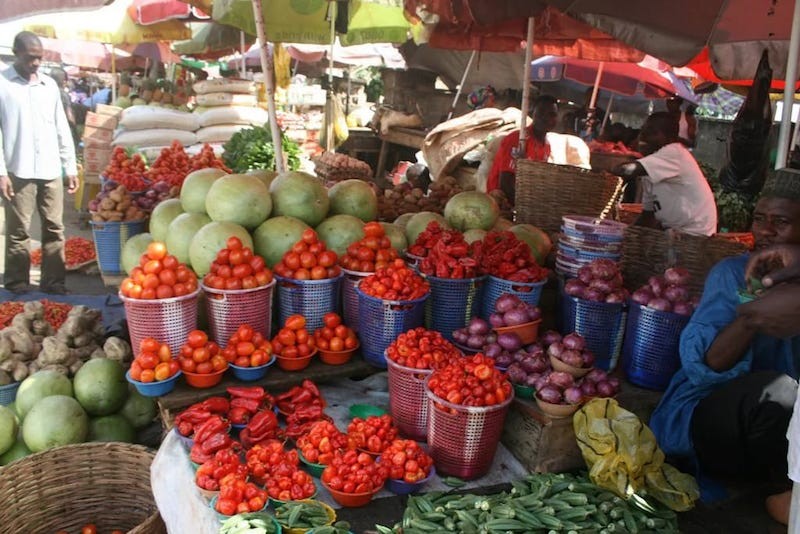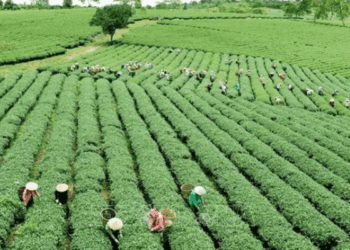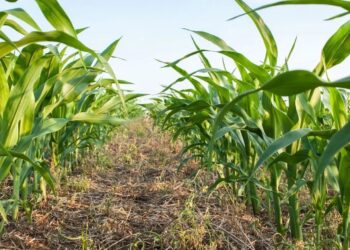Nigeria has unveiled a $3.14 billion agricultural investment portfolio under the Food and Agriculture Organization’s (FAO) Hand-in-Hand Initiative, a move expected to reshape food production, strengthen rural economies, and position the country as a regional anchor for food security.
The announcement came at the National Hand-in-Hand Investment Forum held in Abuja, where Minister of Agriculture and Food Security, Abubakar Kyari, outlined opportunities for investors in irrigation, mechanisation, and value-added processing.
The portfolio, backed by $1.75 billion in public funding and $1.39 billion in private commitments, targets five priority value chains—tomato, cassava, maize, dairy, and fisheries.
Kyari described agriculture as Nigeria’s strongest lever for economic transformation, stressing that the sector goes beyond food provision.
“Agriculture is about jobs, resilience, and national stability. What we present today are investment-ready cases that can deliver not only returns, but impact for millions of Nigerians,” he told investors and development partners.
Despite its vast potential, agriculture in Nigeria remains under-optimised. The sector contributes about a quarter of GDP and employs nearly half of the workforce, yet large swathes of farmland and water resources remain untapped. Out of 70 million hectares of agricultural land, only 34 million hectares are arable, and less than 20 percent is cultivated.
Similarly, while the country can irrigate more than 3 million hectares, less than 10 percent of that capacity is currently in use.
Kyari said bridging these gaps is a central objective of the new investment plan. With expanded irrigation and mechanisation, Nigeria could triple yields, reduce dependence on seasonal rainfall, and withstand climate shocks.
“Our agro-ecological diversity enables year-round cultivation of cereals, roots, fruits, livestock, and aquaculture. With the right capital and technology, we can convert this diversity into food sovereignty,” he added.
The government has introduced a broad suite of fiscal and institutional incentives to attract investors. These include customs duty waivers on agricultural equipment, five-year corporate tax exemptions for qualifying agribusinesses, and tax relief for firms sourcing most of their raw materials locally.
Investors employing over 1,000 workers can access a 15 per cent tax relief, while companies investing in agriculture are eligible for long-term credits tied to their capital outlay. Foreign investors are assured full repatriation of profits and dividends, a measure designed to build confidence and liquidity.
Kyari called the incentives “one of the most comprehensive enabling environments for agribusiness in Africa,” emphasising that they lower risks and improve profitability for both local and international players.
Nigeria’s demographics strengthen its agricultural appeal. With more than 230 million people, 75 percent of whom are under 35, the country has both a growing consumer base and a young, tech-savvy workforce. Urbanisation and rising incomes are driving demand for processed and nutritious foods, while the African Continental Free Trade Area opens access to a market of 1.3 billion people.
Start-ups such as Samson Ogbole’s Soilless Labs and Femi Adekoya’s Flying Farmers were cited at the Forum as examples of innovation reshaping the sector. These ventures illustrate how Nigeria’s digital economy and private capital are beginning to influence farming practices once dominated by traditional methods.
The government acknowledged that structural barriers persist. Post-harvest losses in some value chains exceed 40 percent due to poor storage and logistics. Smallholder farmers often lack access to credit, quality seeds, fertilisers, and mechanisation. Security issues in rural areas also pose risks.
To address these concerns, Nigeria is expanding Special Agro-Industrial Processing Zones, scaling up cold chain logistics, and recapitalising the Bank of Agriculture to provide affordable financing. Digital extension services and local equipment manufacturing are also being supported.
“These interventions are about de-risking agriculture. We are deliberately targeting youth and women, creating opportunities for fresh talent and entrepreneurship within our food systems, “Kyari explained.
The $3.14 billion portfolio has been developed through rigorous feasibility studies and data analysis.
According to the ministry, each value chain presents an internal rate of return above 14 percent. More than 4.1 million Nigerians are expected to benefit directly and indirectly, with per capita incomes projected to rise by as much as $657.
The portfolio also has climate benefits, including the potential to sequester over 1.2 million tonnes of carbon, making it attractive to investors focused on sustainability.
FAO’s Representative in Nigeria, Hussein Gadain, described the initiative as a turning point. “We are moving from anecdote to evidence, matching investment opportunities with private sector and development interests. These are not just commitments on paper; they are tangible cases with transformative impact,” he said.
Beyond its domestic targets, Nigeria is also championing the Hand-in-Hand Initiative for the Sahel, with a focus on irrigation and water resource management. The goal is to strengthen resilience against climate shocks and build integrated food systems across the subregion.
Kyari framed Nigeria’s leadership role as both a responsibility and an opportunity.
“What we are doing here is not only for Nigeria. It is a milestone for West Africa and the Sahel. By October, when we meet again in Rome, we will showcase to the world how Africa is turning commitments into action,” he said.





